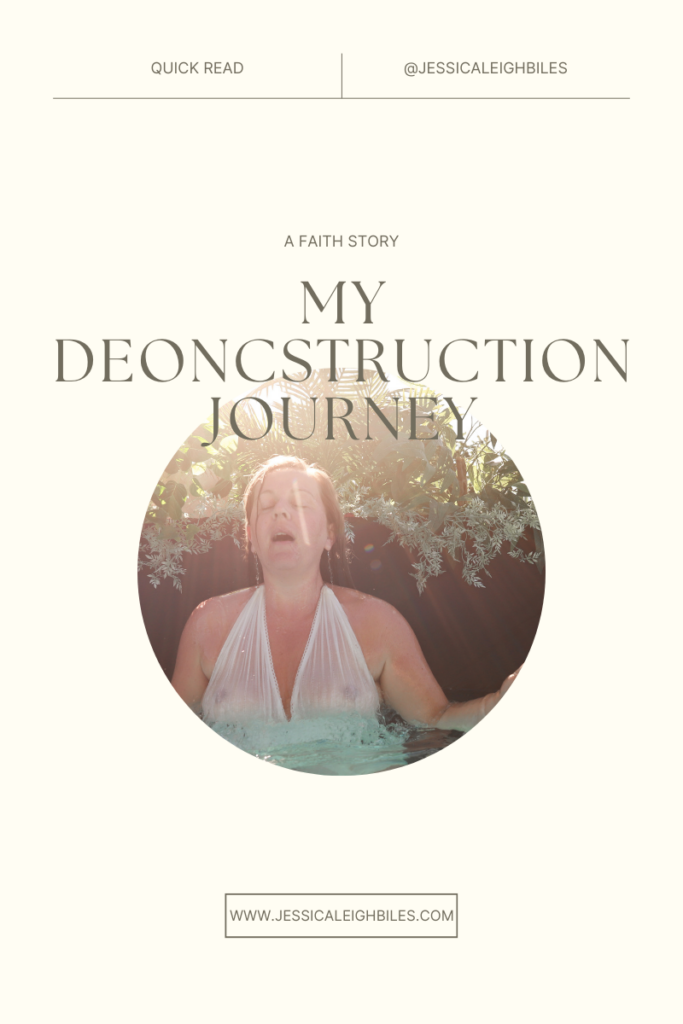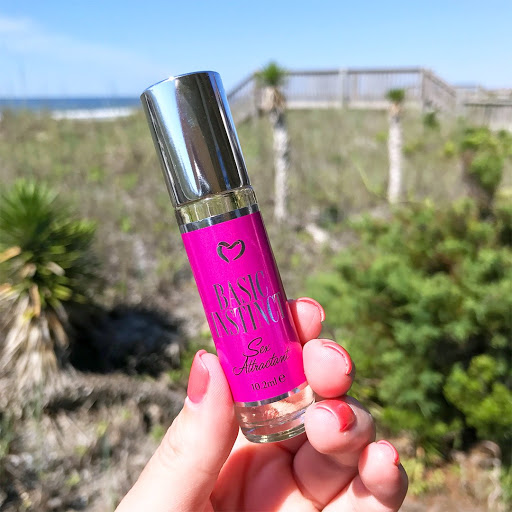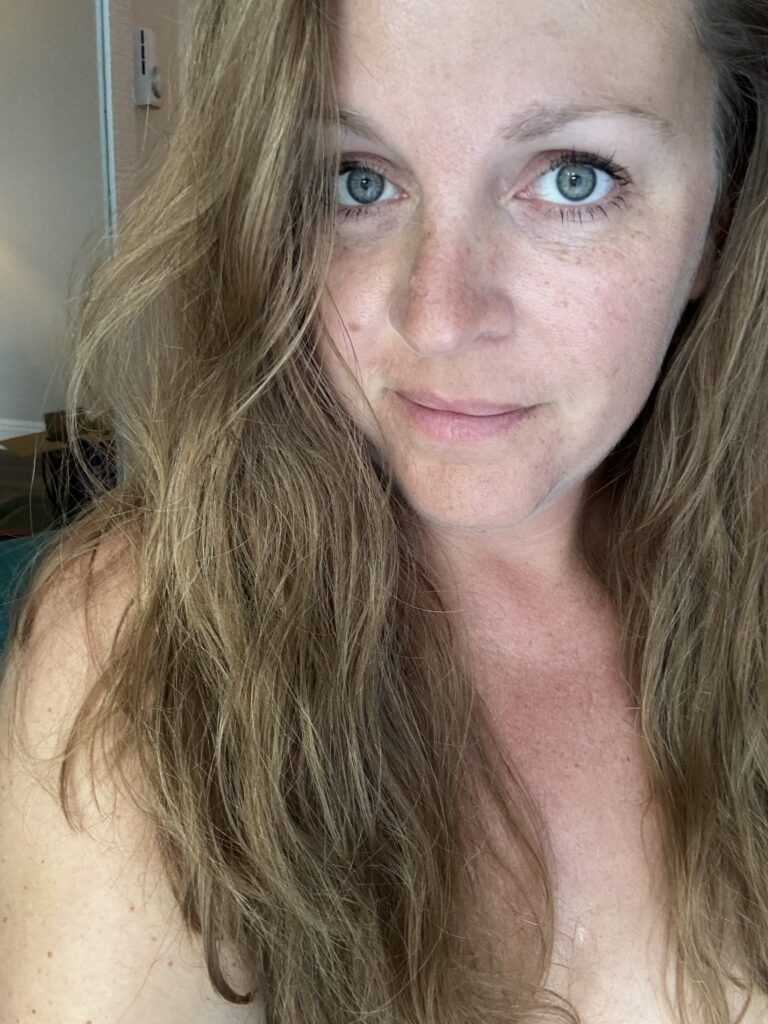What happens when you question everything you’ve been taught to believe? For me, my faith deconstruction journey started with a simple prayer at five years old. At the time, I thought I was choosing a path that would define me forever. But as the years passed, I began to realize that faith isn’t as simple as I once believed.
From a young age, I believed I was beautifully and wonderfully made—special because God made me that way. However, now that I’m in my late 30s, I question everything I once accepted as truth. Let me share what happens when you let go of a lifetime of religious certainty and start asking difficult questions.
My Salvation Prayer and Early Faith
At five years old, I asked Jesus to live in my heart. That moment, surrounded by my parents, marked the beginning of my faith journey and, at the same time, the pressure to bring others to Heaven.
Over the next few years, I became deeply committed to my faith. In fact, I passionately tried to convince my family they needed Jesus. Yet, I felt devastated knowing so many of them wouldn’t join me in Heaven.
As a tween, I briefly questioned whether my religion was the only “right” one. But after attending my first church youth camp, I recommitted my life to Christ during an emotional worship service. At that point, I believed I had finally made my faith my own—not just something my parents wanted for me. I thought I had chosen to follow Jesus for myself. But had I?
Even after recommitting, I couldn’t shake the feeling that something didn’t quite fit. Over time, those quiet doubts laid the foundation for my faith deconstruction journey—even though I didn’t fully realize it at the time.
The Questions That Wouldn’t Go Away
As a teenager, I constantly wavered between wanting to be a good Christian girl and feeling the urge to break the rules that came with that lifestyle. Most teenagers rebel in some way, so I could have dismissed my thoughts as typical. But as I grew older, I realized my questions ran much deeper.
For instance, I often wondered, “Why do we have to go to church every week, even when we don’t want to?” and “Why does it matter what I wear to church?” More importantly, I asked, “Why do I have to change the way I speak just because I’m at a church function?”
At the time, I didn’t realize it, but these questions were the first cracks in my faith. Even though I pushed them aside, they remained in the back of my mind, waiting for the right moment to resurface.
Where My Faith Started to Crack
A few years into my marriage, I became a consultant for a company called Pure Romance. That decision changed everything. Although I still identified as a Christian, I soon found myself struggling to balance my faith with my work. As I interacted with different people and encountered new perspectives, I began to question the beliefs I had always taken for granted.
One of the biggest turning points happened at a conference where leaders encouraged us to donate to various causes, including LGBTQ+ and transgender rights. Initially, I hesitated, afraid of doing something that might conflict with my morals. I even called my husband, hoping he could help me sort through my feelings. However, the more I thought about it, the more I realized love should come first—every person deserves support and care, even if I didn’t fully understand their experiences.
So, I decided to donate and sign the cards. At that moment, I didn’t fully grasp the significance of my choice. But looking back, I see that decision as a major step in my faith deconstruction journey. For the first time, I actively challenged the beliefs I had been raised with, and surprisingly, I felt good about it.
As time passed, my work with Pure Romance continued to reshape my views. Not only did I learn about sex education—something the church refused to discuss—but I also started seeing myself differently. Gradually, I grew into a successful entrepreneur and even embraced the title of “Christian Sex Coach.” Ultimately, this experience deepened my understanding of myself and pushed me to question everything I had once believed.
Therapy Helped Me Rebuild My Identity
Letting go of my faith wasn’t easy. After all, how could I walk away from something that had been part of my life for so long? More importantly, how could I let go of the security it gave me? Christianity had always felt safe.
Yet, therapy changed everything. As I worked through my doubts, I began to untangle what I truly believed from what I had been conditioned to believe. Little by little, I realized that morality, identity, and purpose didn’t come from religion. In fact, they had always existed within me.
Now, I understand that we all have an inner self—a part of us that knows who we truly are. Unfortunately, I never learned that in Sunday school. Instead, I had to go to therapy to even begin understanding the roles of religion, spirituality, and personal identity—something I will likely explore for years to come.
Embracing My Uniqueness Without Religion
Despite everything, I still believe I’m special. But not because God made me that way. Rather, I believe it because I choose to step into the fullest version of myself and share my story—a scary thing in today’s cancel culture.
Even though I still have questions, I feel proud of who I am. In fact, every day, I feel more and more in tune with myself.
A Journey Worth Sharing
Looking back, I see how my faith shaped so much of who I was. At the same time, I see how letting it go allowed me to discover who I truly am. My faith deconstruction journey didn’t happen overnight. Instead, it forced me to question my identity, challenge deeply ingrained beliefs, and confront fears that had once held me captive.
However, in doing so, I found freedom. Freedom to grow. Freedom to learn. Freedom to be fully, unapologetically myself.
Many people assume that deconstruction means losing yourself. But in my case, it meant finding the self I had been taught to suppress. It meant embracing my imperfections, my questions, and my humanity in a way I never thought possible.
Through this process, I’ve learned that being “special” isn’t about meeting someone else’s expectations or following a doctrine. Rather, it’s about stepping into the person I choose to be—on my own terms.
If you’re questioning your beliefs, I want you to know this: It’s okay to feel scared. It’s okay to not have all the answers. But don’t let fear stop you from asking the questions that could lead to your freedom. You are stronger than you think. And no matter what, the journey is worth it.
Ultimately, I hope my story reminds you that we all have the power to grow beyond the narratives we were given. No matter where you come from, you can reclaim your story, your identity, and your life. Because in the end, my faith deconstruction journey has shown me that the courage to question, to grow, and to share—that is what makes you truly special.


